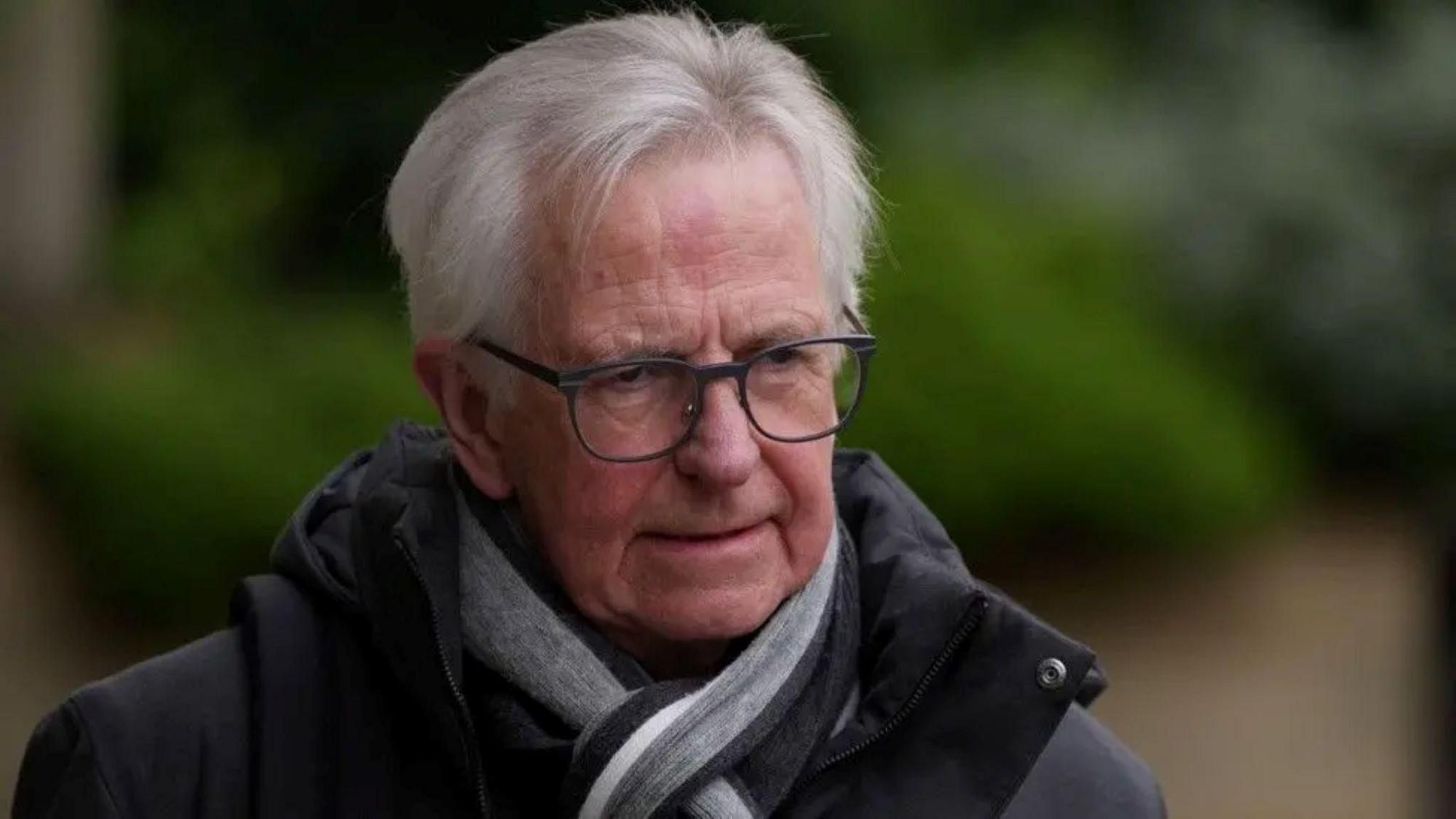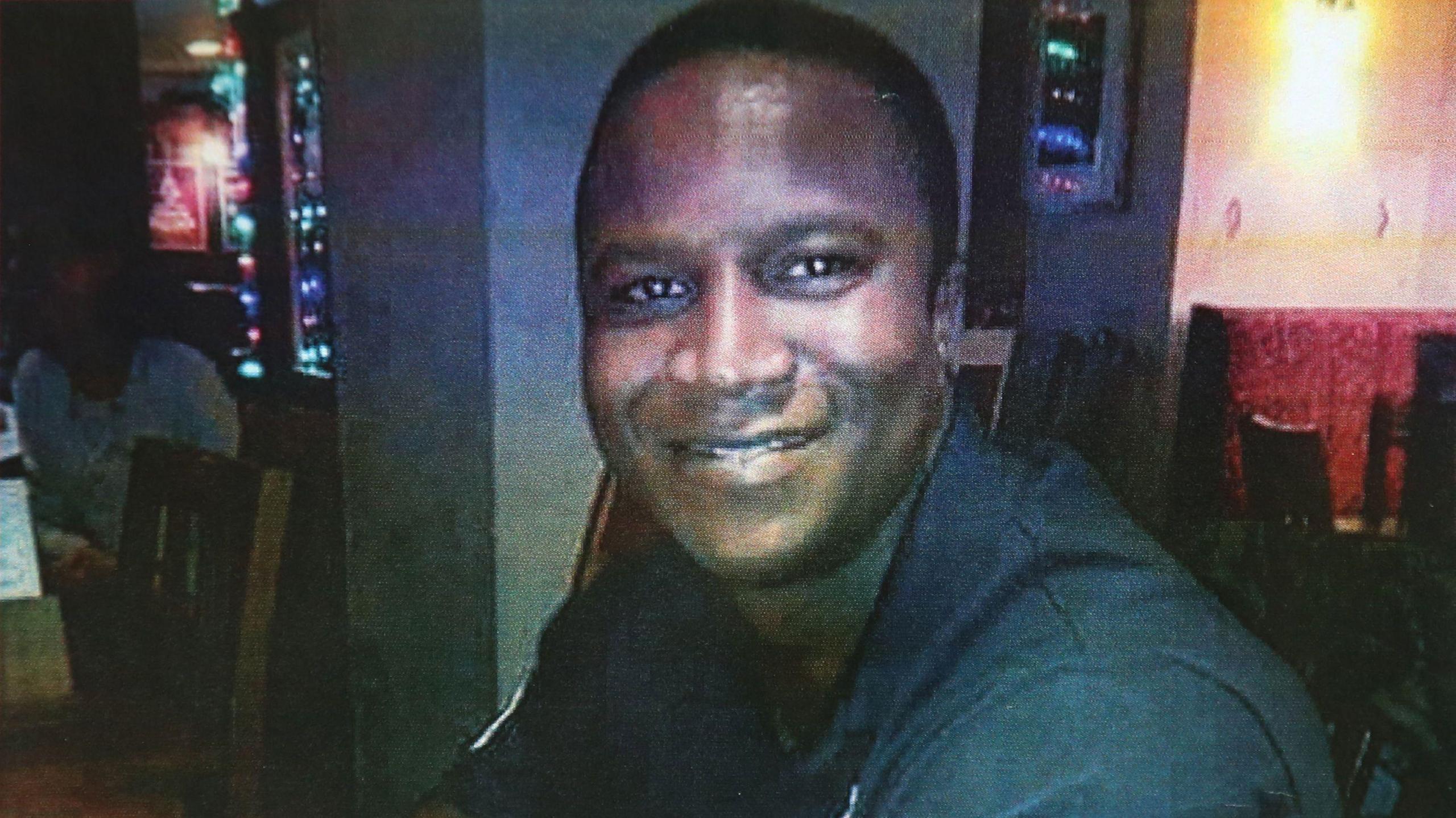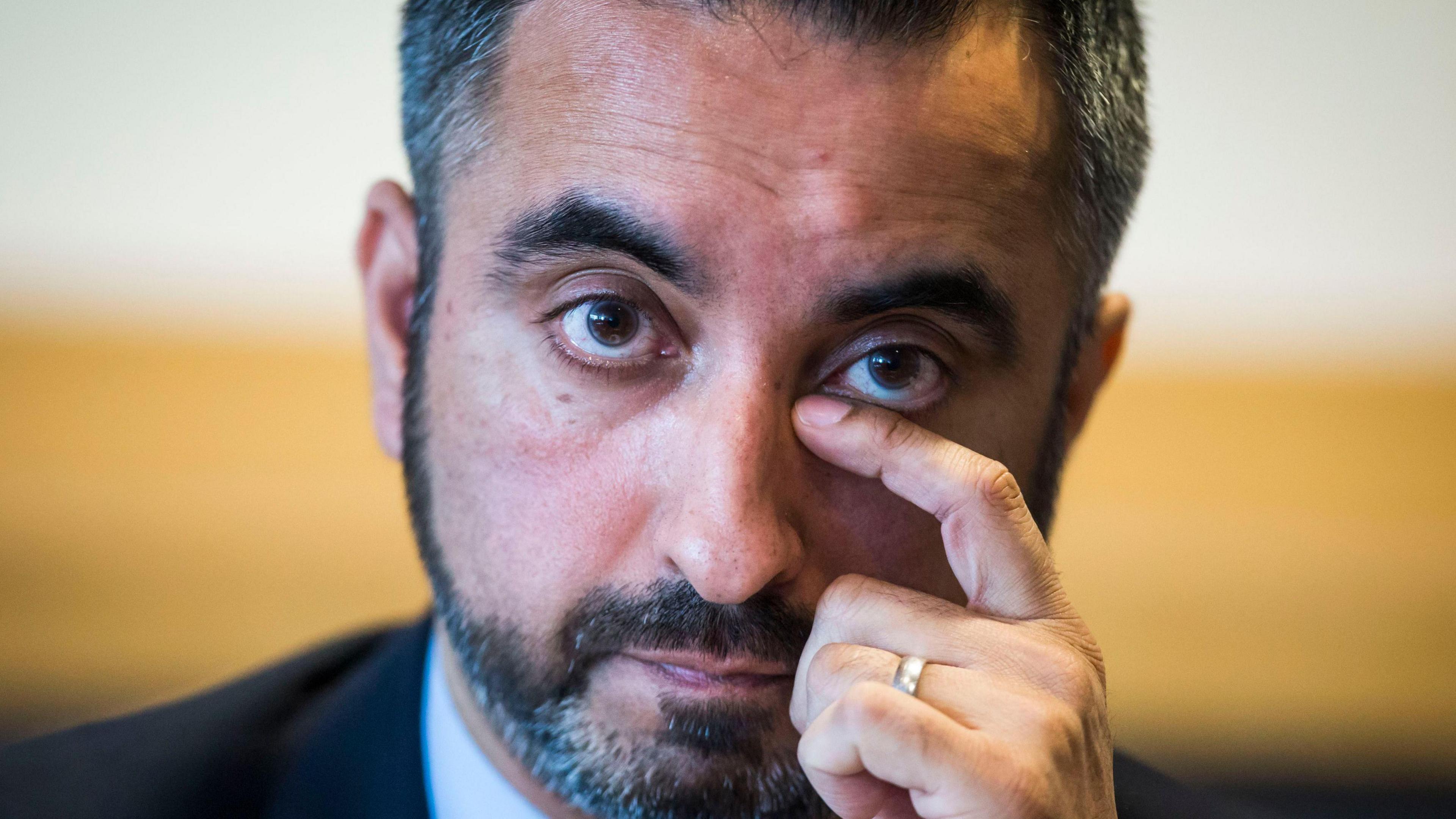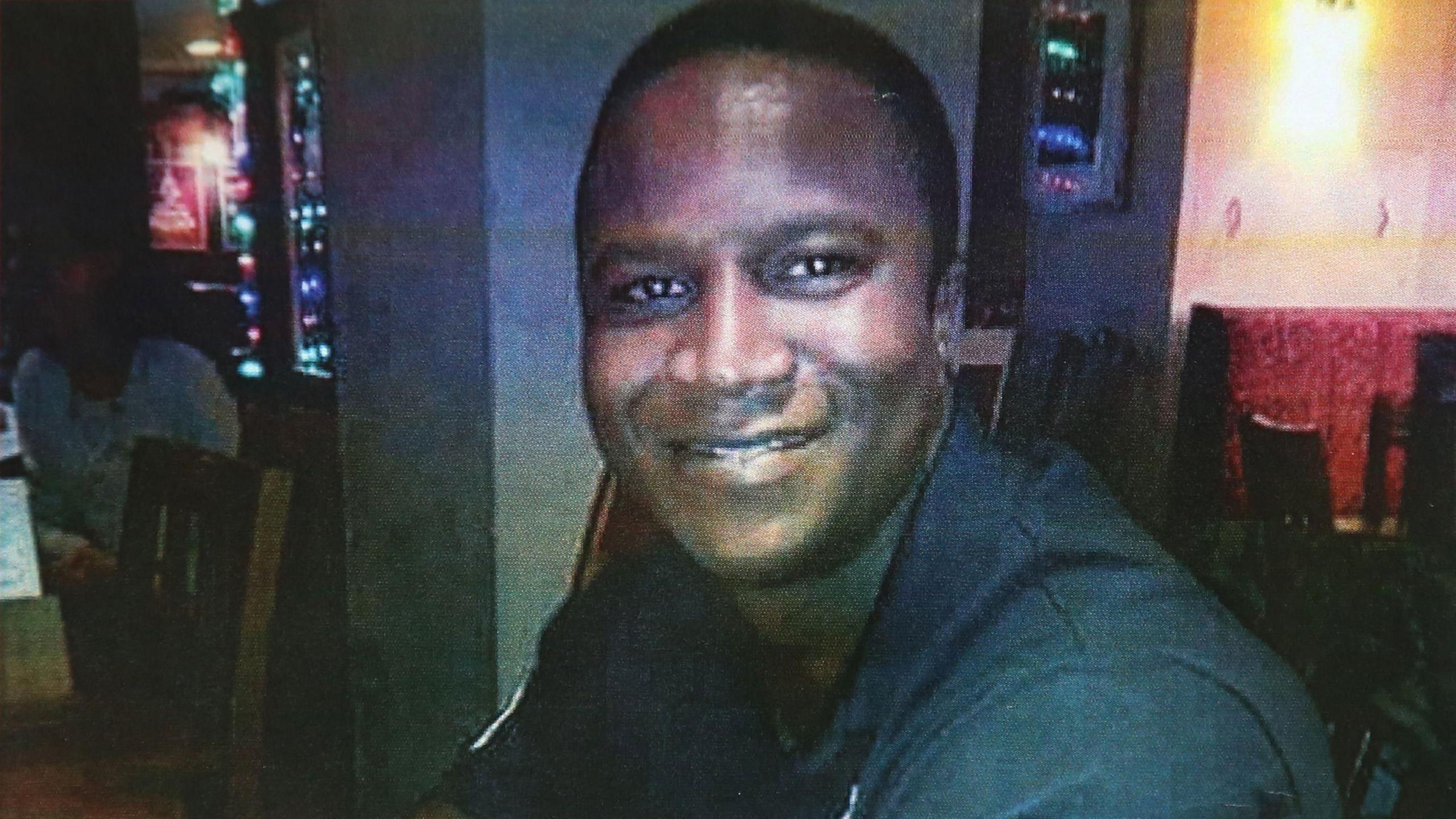Sheku Bayoh family 'totally betrayed' after inquiry chair quits

Sheku Bayoh died after being restrained by six police officers in Fife
- Published
The family of Sheku Bayoh said they feel "totally betrayed" by the criminal justice system after the resignation of the chair of the inquiry into his death
Lord Bracadale confirmed he was standing down on Tuesday, after refusing calls to quit by the Scottish Police Federation (SPF) two months earlier.
The SPF had questioned his impartiality over meetings with Mr Bayoh's family. But the family insisted the "respected" former judge had done "nothing wrong".
Sheku Bayoh was 31 when he died in May 2015 after being restrained by six police officers on a street in the Fife town of Kirkcaldy.
The family have threatened to withdraw from the public inquiry and have asked for a meeting with First Minister John Swinney.
In a statement on behalf of the Bayoh family, lawyer Aamer Anwar said: "There is nothing wrong with a chair of a public inquiry treating a bereaved family with compassion and respect.
"The treatment of Lord Bracadale by our institutionally racist criminal justice system is a warning to any judge who dares to act without fear or favour.
"If this is what they do to one of their own, just look at how the Bayoh family have been treated for over a decade."

Lawyer Aamer Anwar (right) spoke on behalf of the Bayoh family at a press conference
The SPF, which represents rank and file police officers, said it would seek to raise a judicial review after Lord Bracadale refused to stand down in August.
It said his position had become "untenable" but added the current situation was "unfortunate for all those involved".
Mr Anwar also criticised the chief constable of Police Scotland and Scotland's solicitor general, Ruth Charteris KC, for "sabotaging" the inquiry by backing the SPF's move.
He said it was a "total betrayal" of promises to Mr Bayoh's family and they should "hang their heads in shame".
Mr Anwar added: "Despite the desperate claims of the Scottish Police Federation, Lord Bracadale had done nothing wrong
"He was respected for his impartiality and integrity."
Sheku Bayoh timeline of events
The Sheku Bayoh inquiry - which started in November 2020 - has been examining the death of the father-of-two in custody, how police dealt with the aftermath and whether race was a factor.
Members of the public called the police after Mr Bayoh was spotted carrying a knife and behaving erratically in the streets of Kirkcaldy on 3 May 2015.
He was not carrying the knife when officers arrived at the scene but a violent confrontation followed, with up to six officers restraining him on the ground.
Mr Bayoh lost consciousness and later died in hospital.
The inquiry has so far cost £26.2m, with an additional £24.3m spent by Police Scotland, including £17.3m of legal costs.
The Solicitor General acknowledged that Lord Barcadale's resignation would "incur further cost to the public purse".
Ruth Charteris KC said: "I fully appreciate that a further delay in concluding the inquiry will be a source of disappointment and frustration to the family
"My position has been that certain procedural approaches, while undertaken with good intentions, may satisfy the test for apparent bias.
"I am duty-bound to act in the public interest, and I could not remain silent."

Lord Bracadale had led the inquiry into Mr Bayoh's death since 2020
In his resignation letter to the Scottish government, Lord Bracadale said he was standing down as "many of the core participants" had lost confidence in his conduct of the inquiry due to the family meetings.
The former judge said the purpose of these was to "obtain and retain their confidence in the Inquiry and their engagement with it".
Lord Bracadale said Mr Bayoh's family members had "lost confidence" in Police Scotland, the Police Investigations and Review Commissioner and the Crown Office and Procurator Fiscal Service.
He added: "I consider that if I had not had meetings with members of the families, it is likely that they would have walked out of the Inquiry.
"I very much regret that my conduct in relation to meeting the families, for what I considered to be a reasonable purpose of maintaining their engagement with the inquiry, has led to a loss of confidence by other core participants in my position as chair."
The Scottish government thanked Lord Bracadale for his work and said it was "committed to establishing the facts" over the circumstances of Mr Bayoh's death.

Lord Bracadale's unexpected resignation leaves the Scottish government with an unprecedented and unenviable task.
It's the first time the chair of a public inquiry has stepped down with the finishing line in sight.
If the government believes the retired high court judge should be replaced with someone from the judiciary, they will consult Scotland's top judge, the Lord President Lord Pentland, who will try to find someone prepared to take on the job.
The pool of people in Scotland who are qualified to do it is limited.
And, of the country's 36 serving high court judges, four are already chairing other public inquiries.
The new chair will have to be willing to come in at the eleventh hour, review a huge body of complex evidence, hear closing submissions and then reach conclusions about what happened.
That means that more than a decade after Sheku Bayoh died, it's impossible to say when the inquiry will publish its findings on this difficult, contentious and important case.
Related topics
- Published21 October

- Published1 October 2024

- Published24 March
